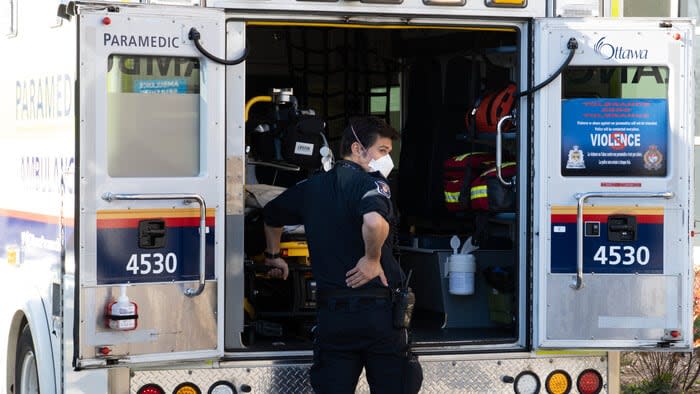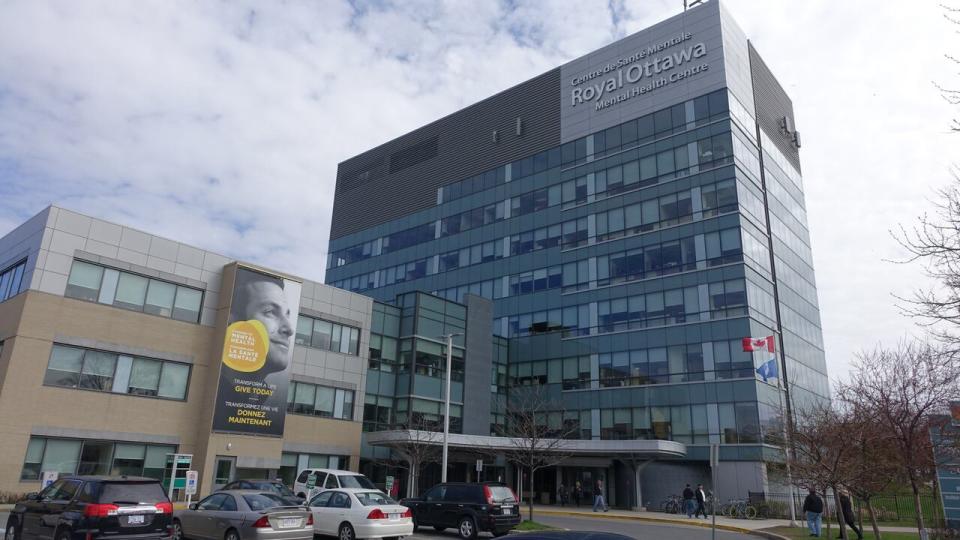Paramedics now treating pain of opioid withdrawal to open door to recovery

For the first time, Ottawa paramedics are able to administer suboxone while responding to opioid-related 911 calls — a drug that, when dosed correctly, eases the painful symptoms of overdose reversal and withdrawal.
And instead of only being able to take a patient to hospital afterward, paramedics have new options to recommend to patients for followup care, thanks to partnerships with Ottawa Public Health, The Ottawa Hospital and the Royal Ottawa Mental Health Centre.
That includes followup within 24 hours by staff at The Royal's Rapid Access Addictions Medicine clinic, which can continue suboxone treatment to keep withdrawal at bay, as well as craft an individualized care plan, if the patient consents.
The idea behind these moves is that if a person's painful withdrawal symptoms are taken care of, it opens the door for them to think about treatment.
After all, it's hard to ponder recovery from drug addiction — or anything besides using — when your body and mind are screaming for relief from the discomfort and pain of opioid overdose treatment and withdrawal, said Mike Souilliere, director of patient care for The Royal's substance use and concurrent disorders program.

The Royal Ottawa Mental Health Centre runs a Rapid Access Addictions Medicine clinic, a low-barrier program that doesn't require a referral from a doctor, and that provides medication for opioid and alcohol use disorders. (Giacomo Panico/CBC)
Fear of withdrawal 'is so strong'
That pain can be quite intense. While Souilliere hasn't experienced it himself, he knows from speaking to clients that it can feel like they're going to die, and that they'll do anything they can to avoid it.
"People would leave in the middle of the night — and have two kids in their beds sleeping — to go search for opioids, because that fear of going through that withdrawal is so strong," he said.
"It's not something you choose. Your brain just decides this is exactly what I need to do right now, and nothing else is going to supersede that."
Logan Martin, a paramedic superintendent of operations, said withdrawal presents as "extreme pain" as soon as someone wakes up after receiving the overdose reversal drug naloxone. Symptoms include joint pain, crawling skin, diarrhea, extreme nausea, vomiting, chills — like a severe flu that you think will kill you.
Making people feel better opens the door for them to think about their wellness.
"Nobody's ready to talk about the future when they're feeling absolutely awful," Martin said.
Suboxone not yet administered
The program has been running for two weeks. As of Wednesday, Martin said paramedics hadn't yet administered a dose of suboxone, so they're raising awareness.
"A key part to success is that our community learns that this is available to them and that there are paramedics out there in the community that care about them, that want to help them, that want to improve their symptoms and get them connected to care," Martin said.
Having the extra referral options eases the moral dilemma paramedics found themselves in when they could only offer to take patients to already overwhelmed emergency rooms, Martin added.
Drug users can feel a lot of stigma in hospital — if they're even willing to wait 10 or more hours for care — so it's often "not the most appropriate place for them," she said.
Specialized response team
The work is being done by the Mental Wellbeing Response Team, which came into being in 2022.
It pairs paramedics with staff from partner agencies to respond to 911 calls that are non-violent and non-criminal, and where mental health and substance use are contributing factors.
Anyone assessed by paramedics through calls to 911 is eligible, if they're interested.
The Royal said the approach reduces the chances that someone will overdose again in the short term, while boosting the odds for their recovery over the longer term.


